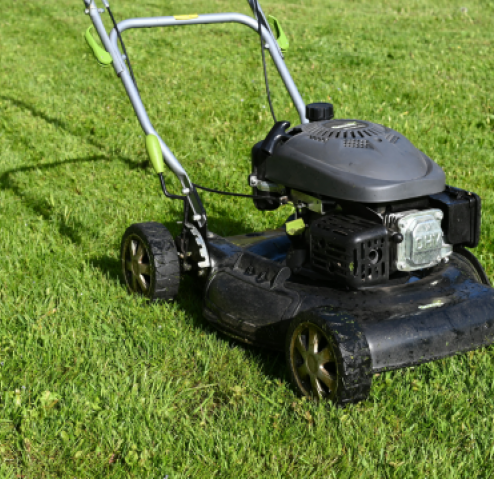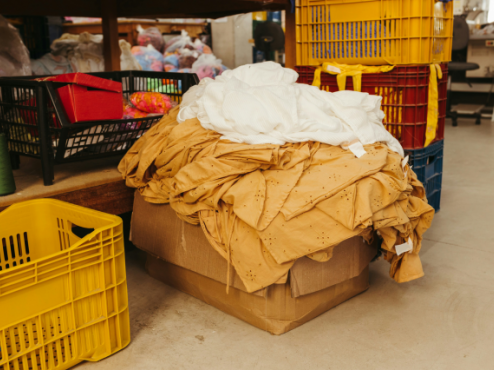Where to Dispose of Furniture?
Disposing of old furniture can be a daunting task. Whether you’re moving, upgrading your home decor, or simply decluttering, figuring out where to take that bulky sofa or worn-out table can be a challenge. Fortunately, there are numerous ways to dispose of furniture responsibly and conveniently. In this comprehensive guide, we’ll explore practical steps, tips, and useful information to help you navigate the process of furniture disposal.
1. Assess the Condition of Your Furniture
Before deciding where to dispose of your furniture, assess its condition. Is it still usable, or is it beyond repair? This evaluation will determine the most appropriate disposal method.
- Usable Furniture: If the furniture is in good condition, consider donating, selling, or giving it away.
- Unusable Furniture: If the furniture is broken, heavily damaged, or unsafe to use, you’ll need to explore disposal options such as recycling or trash disposal.
2. Donation: Giving Your Furniture a Second Life
Donating furniture is a great way to give it a new life while helping those in need. Many organizations and charities accept furniture donations, and some even offer free pickup services.
Organizations That Accept Furniture Donations
- Goodwill: Goodwill accepts a variety of furniture items, and donations help fund job training and employment programs.
- Salvation Army: The Salvation Army accepts furniture donations and uses the proceeds to support various community programs.
- Habitat for Humanity ReStores: These stores accept furniture donations and sell them to fund affordable housing projects.
- Local Charities and Shelters: Contact local shelters, churches, and non-profits to see if they accept furniture donations.
Tips for Donating Furniture
- Check Donation Guidelines: Different organizations have specific guidelines regarding the types of furniture they accept. Check their websites or call ahead to confirm.
- Schedule a Pickup: Many charities offer free pickup services for larger items. Schedule a pickup to make the donation process easier.
- Clean and Repair: Ensure the furniture is clean and in good condition. Minor repairs can make a significant difference in whether an item is accepted.
3. Selling: Turn Your Old Furniture into Cash
If your furniture is still in good condition, consider selling it. This can be a great way to make some extra money while ensuring the item finds a new home.
Platforms for Selling Furniture
- Online Marketplaces: Websites like Craigslist, Facebook Marketplace, and eBay are popular platforms for selling furniture locally.
- Apps: Apps like OfferUp and Letgo make it easy to list and sell furniture from your smartphone.
- Consignment Shops: Some consignment shops accept furniture and will sell it on your behalf, taking a commission on the sale.
Tips for Selling Furniture
- Take Quality Photos: Good photos can significantly increase the chances of selling your furniture. Take clear, well-lit pictures from multiple angles.
- Write Detailed Descriptions: Provide detailed descriptions, including dimensions, condition, and any notable features or flaws.
- Price Competitively: Research similar items to price your furniture competitively. Be open to negotiation to attract buyers.
- Be Responsive: Respond promptly to inquiries and arrange convenient pickup times for buyers.
4. Recycling: Environmentally Friendly Disposal
For furniture that is no longer usable, recycling is an environmentally friendly option. Many materials used in furniture, such as wood, metal, and certain plastics, can be recycled.
How to Recycle Furniture
- Curbside Pickup: Some cities offer curbside pickup for large items. Check with your local waste management service to see if they accept furniture for recycling.
- Recycling Centers: Take the furniture to a local recycling center that accepts bulky items. They can disassemble the furniture and recycle the materials.
- Specialized Services: Some companies specialize in furniture recycling. They may offer pickup services and ensure the furniture is properly recycled.
Tips for Recycling Furniture
- Disassemble: If possible, disassemble the furniture to make it easier to transport and recycle. Separate different materials (e.g., metal from wood).
- Research Local Options: Different areas have different recycling facilities and guidelines. Research local options to find the best solution for your furniture.
5. Junk Removal Services: Convenient Disposal
If you have a large amount of furniture to dispose of or if the items are too heavy or cumbersome to move on your own, consider hiring a junk removal service.
Benefits of Junk Removal Services
- Convenience: Junk removal services handle all the heavy lifting and transportation, making the process hassle-free.
- Comprehensive: These services often accept a wide range of items, including furniture, appliances, and other household goods.
- Eco-Friendly Options: Many junk removal companies prioritize eco-friendly disposal methods, including recycling and donation.
Choosing a Junk Removal Service
- Research Companies: Look for reputable junk removal companies in your area. Check reviews and ratings to ensure reliability and quality service.
- Get Quotes: Request quotes from multiple companies to compare prices and services. Be clear about the items you need removed to get accurate estimates.
- Ask About Disposal Methods: Inquire about how the company disposes of the items. Choose a service that prioritizes recycling and donation when possible.
6. Municipal Waste Disposal: Last Resort
If other disposal methods are not feasible, municipal waste disposal is a last resort. This option is generally less environmentally friendly, as furniture often ends up in landfills.
How to Dispose of Furniture Through Municipal Waste Services
- Bulk Pickup Days: Some cities have designated bulk pickup days for large items. Check your city’s waste management schedule for these dates.
- Landfill Drop-Off: Take the furniture to a local landfill or transfer station that accepts bulky items. Be prepared to pay disposal fees.
Tips for Municipal Waste Disposal
- Follow Guidelines: Adhere to your city’s guidelines for bulk waste disposal. Improper disposal can result in fines.
- Break Down Items: If possible, break down large items to make them easier to handle and reduce the amount of space they take up in landfills.
7. Repurposing: Creative Solutions for Old Furniture
If you’re feeling creative, consider repurposing old furniture into something new and useful. This can be a fun and rewarding way to give old items a new lease on life.
Ideas for Repurposing Furniture
- Upcycling: Transform old furniture into something new and stylish. For example, an old dresser can become a chic TV stand or a unique garden planter.
- DIY Projects: Use parts of old furniture for DIY projects. Reclaim wood for shelves, use drawers as storage bins, or turn a headboard into a coat rack.
- Community Projects: Donate furniture to community art projects or schools that can use the materials for creative endeavors.
Tips for Repurposing Furniture
- Get Inspired: Look for inspiration on websites like Pinterest or home improvement blogs. There are countless ideas and tutorials available.
- Use Proper Tools: Ensure you have the right tools and materials for your repurposing projects. Safety is key when working with old furniture.
- Start Small: If you’re new to repurposing, start with small projects before tackling larger items. This will help build your skills and confidence.
Conclusion
Disposing of furniture doesn’t have to be a stressful experience. By assessing the condition of your items and exploring various disposal methods, you can find a solution that is convenient, responsible, and even rewarding. Whether you choose to donate, sell, recycle, or repurpose your furniture, taking the time to dispose of it thoughtfully can make a positive impact on your community and the environment. Remember, the key is to plan ahead, explore your options, and choose the method that best suits your needs and values.
For more tips and resources on responsible furniture disposal, visit Gone for Good Ault. Happy disposing!
 Estate Cleanouts and Junk Hauling Services for Seniors
Estate Cleanouts and Junk Hauling Services for Seniors
Green junk hauling, downsizing, and estate cleanouts from Gone For Good are available throughout Northern Colorado. Unwanted belongings get a second chance with GFG, whether they go to our thrift stores, charity or get recycled- we can as much as we can out of the landfill.
Read More How to Recycle and Why You Should Do It
How to Recycle and Why You Should Do It
In today’s world, recycling has become an essential part of protecting our environment and conserving resources.
Read More Everything You Need to Know About Recycling Old Lawn Mowers
Everything You Need to Know About Recycling Old Lawn Mowers
Lawn mowers are essential tools in maintaining a lush, well-groomed lawn, but like any other machine, they don’t last forever.
Read More Bagster vs Dumpster: Buy a Dumpster Bag or Rent a Small Dumpster?
Bagster vs Dumpster: Buy a Dumpster Bag or Rent a Small Dumpster?
When it comes to tackling a significant cleanup project, whether it’s a home renovation, yard work, or just a major decluttering, disposing of the waste efficiently is crucial. Two popular options are buying a Bagster or renting a small dumpster. Both have their pros and cons, and the best choice depends on your specific needs. In this comprehensive guide, we'll compare Bagsters and dumpsters to help you make an informed decision.
Read More